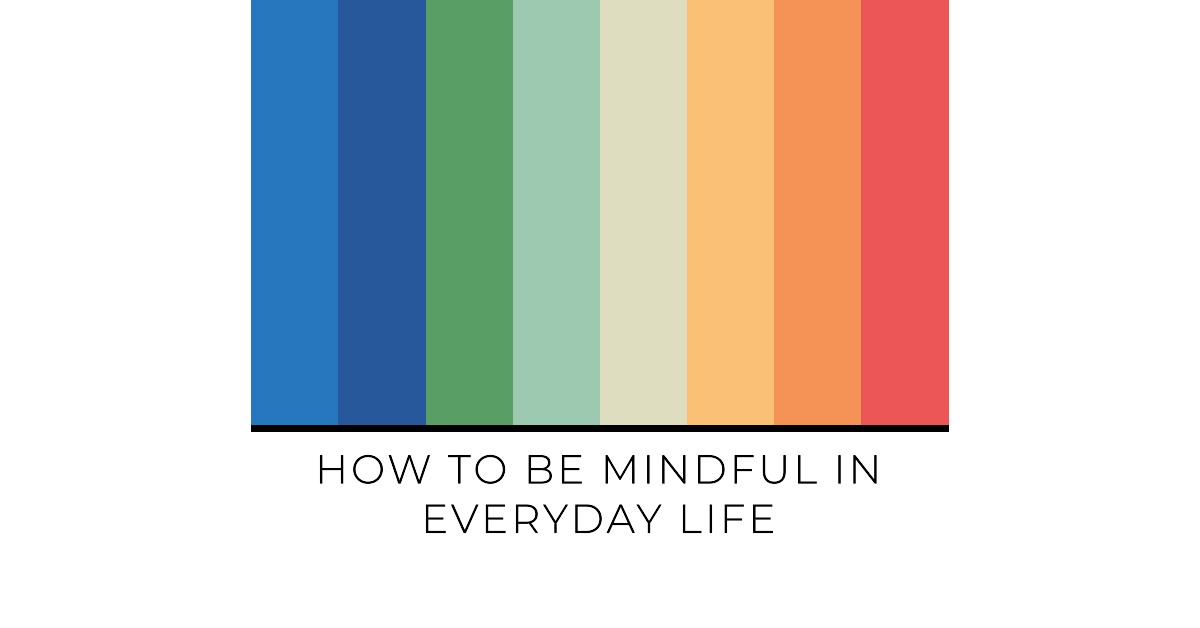In this age of Multitasking a constant bombardment of notifications and ads trying to sell you (mostly) useless stuff, it is becoming increasingly difficult to have a clear mind and stay focused on our journey. It is not uncommon to be easily distracted and see the day pass by when being on autopilot.
Here are a few ways I have figured out that are helpful in keeping us mindful and conscious about how we spend our day.

Mental timer to limit things
It is a crucial step. From morning to the evening, most of us stay on autopilot and at the end of the day we realise that the day has slipped from us and we couldn’t accomplish our tasks that we set for the day (or maybe didn’t even set any tasks for the day).
I am not saying to go crazy and start micro-managing your time. I am asking you to time the stuff you do in everyday life, especially the stuff you know is eating up the biggest part of the pie called the day.
Most important/difficult/helpful would be to time your usage of our phones. Our screen times are going up like crazy. According to latest available data, average screen time globally is almost 7 hours a day. It is wise if we start managing our time here first.
Stay conscious when you are picking up your phone and whatever mindless task you are going to do, set a mental timer for yourself. Say something like, “I am not using Instagram for more than 15 minutes”. Or if you are browsing internet looking for some info, you can say set your time intention like “I am allotting 20 minutes to it”
You may ask, whether it is important to have a mental timer or we can go for a timer on our phone or any other device. You could, but that doesn’t keep us mindful on our own. We are trying to stay mindful and conscious of where and how we spend our time. We want to exercise the muscle of our will. As important as we are trying to be mindful of our time, my objective here is to make us mindful. By setting a timer on the phone, we are again just outsourcing and keeping our mind free. That’s not how you are gonna exercise that muscle of will and discipline.
You want to be in charge of your time and your mind.
Meditate for at least 15 mins a day
Look at meditation as a tool that brings you clarity and consciousness through the day. Regular practice of meditation is claimed to alleviate Brain fog (which hinders us from clarity and being mindful). If you have done meditation, you know what I am talking about. If you haven’t, you’ve got to feel this feeling you get with meditation.
Just a basic breathing meditation, 15 minutes a day. Sit with yourself, closed eyes, no distractions, and focus on your breath. Let the thoughts pass by, and make it a point to stay in the present moment without the feeling of worry, stress, missing out.
We are doing meditation to practice our consciousness and mindfulness.
Do one thing at a time
We overestimate ourselves thinking we can manage to do more than one task, simultaneously. Yes, we could. BUT we can’t do it with clear attention and consciousness on either of those tasks.
I learnt this by observing my partner. Anytime she is doing something, that’s the only thing she is doing.
Benefits of doing one thing at a time include, focus on one thing at a time, less chances of making mistakes, and the biggest benefit is clear intention of doing one thing uninterrupted. Again, this ‘one thing at a time’ approach brings clarity on the task and helps us practice being mindful.
Have a clear intentional goal for the day
This is the final pillar. The idea of setting a clear intentional goal for the day is going to give us a reason to look after where we spend our time and how much time we spend. When you have nothing to look forward to, you keep wandering. When you have got something to look forward to, it serves as a motivation to manage your time and mental resources so that you can achieve your goal for the day.
We can easily fall into the trap of being overly ambitious and set too many goals to achieve in a day. Do not strain yourself. Set only one intentional goal for the day. Praise yourself at the end of the day for finishing that task and celebrate your win.
On the other hand, don’t beat yourself up if you couldn’t manage to achieve your task/goal. Be patient with yourself.
Final words
The whole idea here is to be conscious about choices and be mindful about how we spend our time in a day. The purpose of setting a goal is to have a ‘Why’ so that it makes sense and we are looking forward to achieving something. Meditation helps us practice mindfulness. And, setting a mental timer and doing one thing at a time is to have clear and conscious attention at whatever we are doing throughout the day.
PS These practical mental habits, in turn, will bring discipline and clarity in your everyday life. Thus, alleviating mental fog, and bringing balance in your life.
